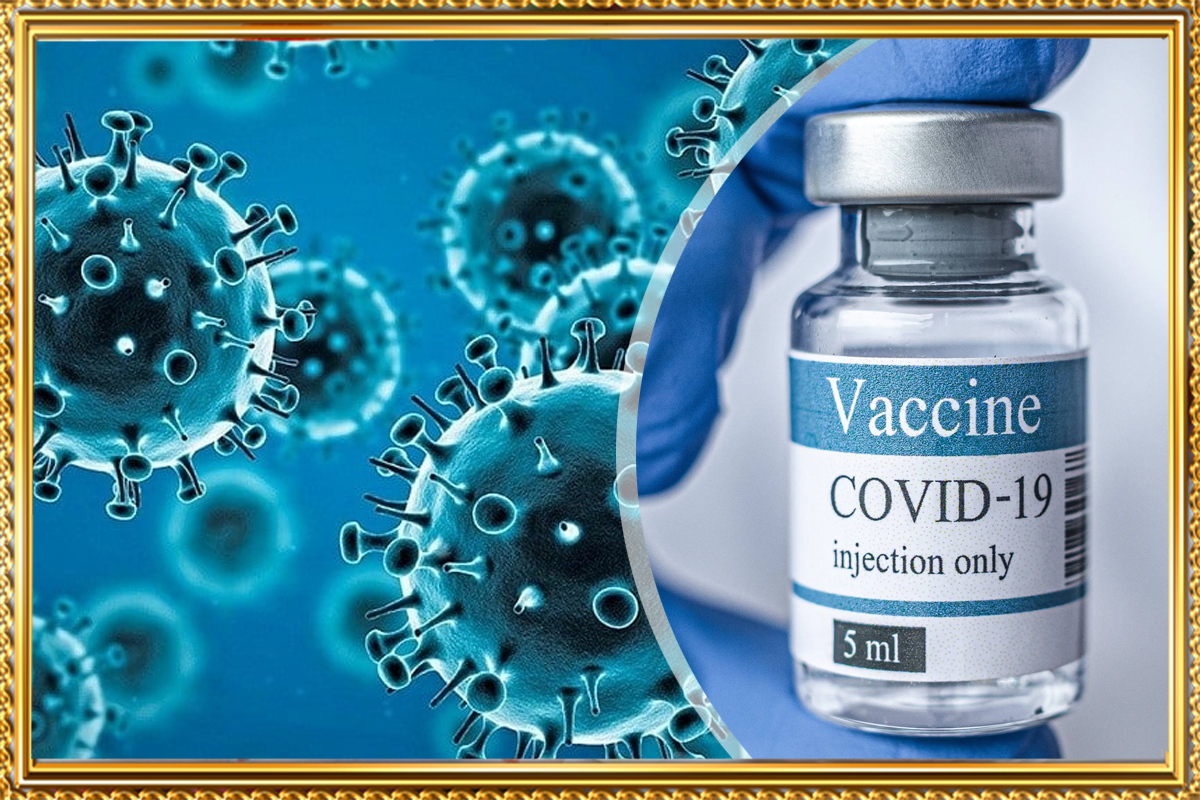- Home
- Is the COVID-19 Vaccine Safe in 2025? Latest Research & Updates
Is the COVID-19 Vaccine Safe in 2025? Latest Research & Updates

Discover the latest insights on the COVID-19 vaccine in 2025, addressing safety concerns, benefits, drawbacks, and frequently asked questions.
The COVID-19 pandemic has continued to shape global health policies even in 2025. With new vaccine formulations and updated booster shots available, public sentiment remains divided. While vaccines have played a crucial role in controlling outbreaks, misinformation and skepticism persist. This article explores the safety, effectiveness, benefits, and concerns regarding COVID-19 vaccines in 2025.
The Positive Aspects of COVID-19 Vaccines
COVID-19 Vaccines
Negative Aspects of COVID-19 Vaccines
FAQs
CONCLUSION
The Positive Aspects of COVID-19 Vaccines
- 1. Advancements in Vaccine Technology • Next-generation vaccines, including nasal spray and oral vaccines, are improving accessibility and compliance. • Self-administered vaccine patches are in development to simplify the immunization process. 2. Combination Vaccines • Scientists are developing vaccines that protect against multiple respiratory illnesses, such as COVID-19 and influenza, in a single shot. 3. Improved Durability of Immunity • New formulations aim to provide longer-lasting immunity, reducing the need for frequent booster doses. 4. Personalized Vaccination Strategies • AI and big data analytics help tailor vaccine recommendations based on individual health conditions and exposure risks. 5. Economic Benefits of Vaccination • Widespread immunization reduces healthcare costs and minimizes economic disruptions caused by outbreaks. 6. Enhanced Public Health Preparedness • The rapid development of COVID-19 vaccines has strengthened global healthcare infrastructure. • Lessons learned have led to faster response strategies for future pandemics. 7. AI and Machine Learning in Vaccine Development • AI-driven research is accelerating the discovery of more effective vaccine formulations. • Predictive modeling helps identify emerging variants and optimize vaccine response. 8. Reduction in Long COVID Cases • Vaccinated individuals show a lower risk of developing long-term post-COVID complications. • Studies suggest vaccines help reduce inflammation and organ damage caused by the virus. 9. Development of Universal Coronavirus Vaccines • Researchers are working on a single vaccine to protect against all coronaviruses, reducing the need for frequent updates. • This could prevent future outbreaks of new coronavirus strains. 10. Inclusion of COVID-19 Vaccines in Routine Immunization Programs • Some countries are incorporating COVID-19 vaccines into standard immunization schedules, similar to flu shots. • This ensures continuous protection without requiring emergency vaccination campaigns. 11. Improved Vaccine Storage and Shelf Life • Advances in storage technology allow for vaccines that remain stable at higher temperatures, reducing reliance on ultra-cold freezers. • This increases accessibility in lower-income countries with limited refrigeration capabilities. 12. Decrease in Overall Healthcare Burden • Widespread vaccination reduces hospital overcrowding, freeing up resources for other medical emergencies. • Lower infection rates mean fewer disruptions to non-COVID healthcare services. 13. Strengthened Global Collaborations • Countries are working together on vaccine research, production, and distribution through initiatives like COVAX. • Increased transparency and data sharing enhance global pandemic responses.

COVID-19 Vaccines
- 1. Effectiveness Against Variants • New vaccines are designed to combat evolving strains, reducing severe illness and hospitalization rates. • mRNA and protein-based vaccines have shown promising results in clinical trials. 2. Reduced Mortality and Severe Cases • Studies indicate that vaccinated individuals experience milder symptoms compared to unvaccinated counterparts. • Hospitalizations and ICU admissions have significantly decreased due to booster dose programs. 3. Herd Immunity Contribution • Higher vaccination rates help reduce community transmission. • Protects vulnerable populations, including the elderly and immunocompromised individuals. 4. Global Accessibility and Affordability • Governments and health organizations have ensured widespread distribution, including free vaccination programs. • Developing nations have greater access due to international aid and production partnerships.
Negative Aspects of COVID-19 Vaccines
- 1. Side Effects and Adverse Reactions • Common side effects include fever, fatigue, and soreness at the injection site. • Rare adverse reactions, such as myocarditis and blood clotting disorders, remain under investigation. 2. Misinformation and Public Hesitancy • Social media platforms continue to spread unverified claims about vaccine safety. • Mistrust in pharmaceutical companies and governments fuels hesitancy. 3. Vaccine Mandates and Ethical Concerns • Workplace and travel mandates have sparked debates over personal freedom versus public health. • Some countries still require proof of vaccination for entry, impacting global mobility. 4. Breakthrough Infections • Although vaccines reduce severe outcomes, breakthrough infections still occur. • Researchers emphasize the need for continuous booster doses to maintain immunity. 5. New Variants Still Pose a Challenge • Despite vaccines, highly mutated strains may still cause localized outbreaks. • Continuous monitoring and rapid vaccine updates are required to maintain effectiveness. 6. Inequality in Booster Dose Availability • Wealthier nations have easier access to booster shots, while low-income countries struggle with supply. • Vaccine hoarding by some countries limits global distribution. 7. Impact on Children and Young Adults • Ongoing debates exist regarding the necessity of boosters for younger populations with lower risks. • Some parents remain hesitant about vaccinating children due to concerns over long-term effects. 8. Misinformation Evolving with AI and Deepfakes • AI-generated deepfake videos and false studies spread vaccine skepticism faster than before. • Governments and health agencies must combat misinformation with reliable sources. 9. Emerging Concerns Over Long-Term Immunological Impact • Some researchers are investigating the long-term effects of repeated mRNA-based vaccinations on immune system function. • While no major concerns have been proven, long-term studies are still ongoing.
FAQs
- 1. Are COVID-19 vaccines still necessary in 2025? Yes, due to evolving variants and waning immunity, booster shots are recommended for continued protection. 2. Do vaccines prevent infection completely? No, but they significantly reduce the severity of illness and lower hospitalization rates. 3. What are the long-term effects of COVID-19 vaccines? Ongoing studies indicate no major long-term risks, with most side effects occurring within the first few weeks of administration. 4. Can I refuse a COVID-19 vaccine? Yes, but certain workplaces, schools, and travel destinations may require proof of vaccination. 5. Are there natural alternatives to vaccination? While a strong immune system is beneficial, vaccines provide scientifically backed protection against severe COVID-19.
Conclusion

As we navigate 2025, COVID-19 vaccines remain a key tool in managing the pandemic. While concerns about side effects and mandates exist, the benefits of vaccination in reducing severe illness and deaths are undeniable. Staying informed through credible sources and discussing concerns with healthcare professionals can help individuals make educated decisions. Ultimately, public health measures, including vaccination, continue to play a crucial role in global recovery.
















Post a comment